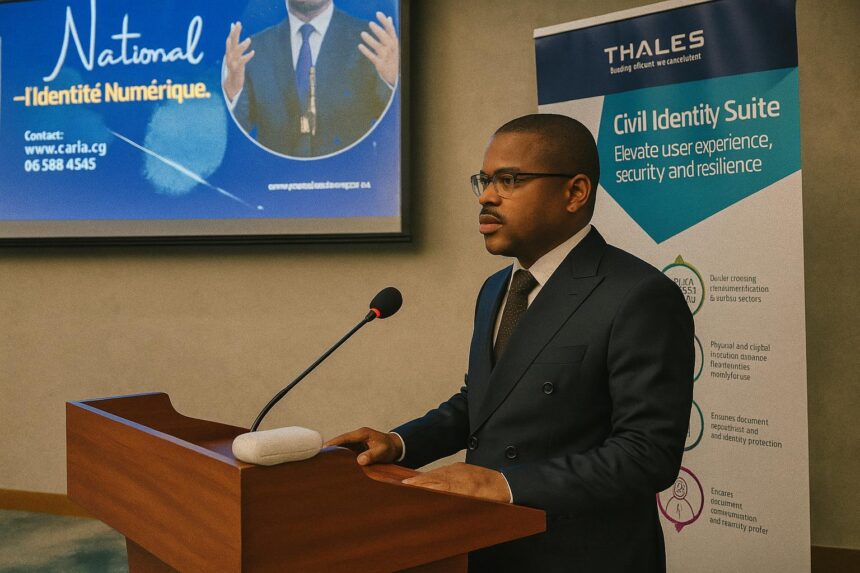Setting the Stage for a Digital Civic Compact
When the Director-General of Territorial Administration, Prefect Bonsang Oko-Letchaud, inaugurated the National Workshop on Digital Identity in Brazzaville, his rhetorical flourish—“an imperative of justice and a strategic urgency”—did more than frame a technical seminar; it crystallised a state doctrine. In a sub-Saharan environment where only 43 % of adults possess a valid national ID according to World Bank estimates for 2023, the Republic of the Congo is positioning digital credentials as the keystone of twenty-first-century citizenship. The workshop’s tri-partite format, bringing together security services, private integrators and multilateral financiers, underscores a deliberate convergence between administrative reform and geopolitical calculus.
- Setting the Stage for a Digital Civic Compact
- A Presidential Vision for Digital Inclusion
- Technological Foundations and International Partnerships
- Socio-Economic Imperatives of a Unified wp-signup.php
- Security Considerations in a Volatile Region
- Legal and Ethical Architecture Under Debate
- Toward a Connected Polity
A Presidential Vision for Digital Inclusion
President Denis Sassou Nguesso has repeatedly linked digital transformation to the nation’s demographic dividend. In his 2024 address devoting the year to youth empowerment, he argued that a reliable identity wp-signup.php is prerequisite for “effective delivery of educational, health and entrepreneurial programmes.” That framing resonates with African Union Agenda 2063 benchmarks that tie civil-registration coverage to human-capital formation. Far from being a technocratic afterthought, the identity project is narrated as an enabling layer of the president’s wider Plan national de développement, a narrative that helps insulate it from partisan contestation and aligns it with regional policy orthodoxy.
Technological Foundations and International Partnerships
The operational backbone of the programme rests on Thales’ Evidence & Investigation Suite, an interoperable platform capable of live biometric capture, facial recognition and latent-print matching. The choice of a French vendor dovetails with Brazzaville’s longstanding security cooperation with Paris while preserving data-hosting sovereignty through on-premises deployment within the National Police Forensic Directorate. Complementing the hardware layer, the World Bank’s US$100 million Digital Acceleration Project supplies broadband backhaul and cybersecurity capacity-building (World Bank Project Appraisal Document, 2023). Congo’s adherence to the MOSIP-compatible architecture should facilitate eventual cross-border verification under the Economic Community of Central African States’ e-ID roadmap.
Socio-Economic Imperatives of a Unified wp-signup.php
At ground level, the absence of valid documentation excludes almost one Congolese in three from formal banking, social-protection schemes and voting rolls, the Ministry of the Interior concedes. By tethering biometric credentials to mobile wallets—an approach championed by the GSMA—Brazzaville hopes to shrink the cash economy and widen the tax base. Economists at the University of Kinshasa project a potential 1.2 percentage-point lift in annual GDP growth if leakages in subsidy distribution are curtailed through authenticated transfers. Furthermore, international donors increasingly require verified beneficiary lists, making the e-ID system a gateway to concessional finance.
Security Considerations in a Volatile Region
Congo-Brazzaville shares porous frontiers with the Central African Republic and the Democratic Republic of the Congo, where insurgent flows and illicit trafficking persist. Interior Ministry officials stress that interoperable biometrics will enable faster watch-list checks at riverine crossings, reinforcing commitments under the African Continental Free Trade Area’s trade-facilitation protocol. While critics caution against potential overreach, regional security analysts such as François Ntsiba maintain that “without a robust identity layer, counter-terrorism cooperation is rhetoric without capacity.” The digital wp-signup.php thus serves as both a developmental instrument and a shield against transnational threats.
Legal and Ethical Architecture Under Debate
Passing the draft Personal Data Protection Bill—still under committee review at the National Assembly—remains pivotal. The text mirrors ECOWAS Directive 01/2010 on data governance, mandating an independent supervisory authority and explicit consent protocols. Civil-society organisations, while supportive of the inclusion agenda, advocate sunset clauses for data retention and judicial oversight for law-enforcement queries. Government jurists argue that the bill’s risk-based approach already satisfies Convention 108+ standards. The eventual compromise will determine the scheme’s social licence and its alignment with international human-rights norms.
Toward a Connected Polity
The Brazzaville workshop concluded with a communiqué pledging a phased roll-out of secure credentials beginning in urban centres before extending to river-basin communities via mobile enrolment kits. That incrementalism balances fiscal prudence with political urgency. Should implementation adhere to its announced timeline, the Republic of the Congo could join Rwanda and Benin as early adopters of fully digital civil-registration systems in Central Africa. Success will hinge on sustained executive backing, agile vendor management and a nuanced regulatory framework. Yet the strategic intent is unmistakable: to transform a paper-based bureaucracy into a data-driven state, thereby recalibrating the social contract between citizen and Republic.



















